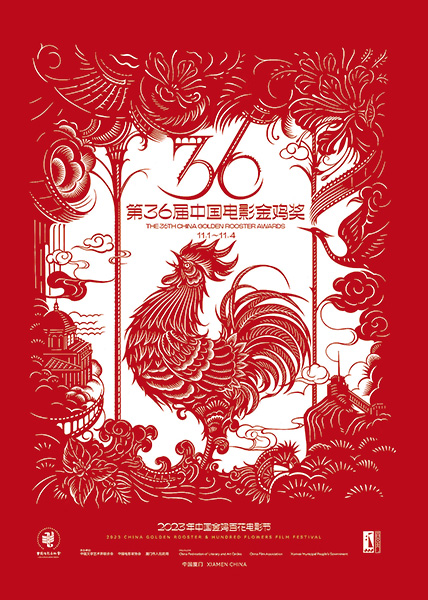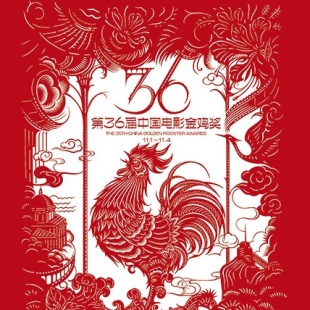Filmmakers share insights into industry's development at festival


The 2023 China Golden Rooster and Hundred Flowers Film Festival, one of the country's most prestigious movie industry events, kicked off on Wednesday in the coastal city of Xiamen, Fujian province, gathering many insiders and celebrities to discuss the prospects of the domestic film industry.
With the aim of boosting the Chinese film industry, the festival is hosting a movie market section for the first time. A total of 126 film and television project agreements were signed on the first day, valued at a staggering 28.05 billion yuan ($3.83 billion).
A series of events were lined up on Wednesday, including a forum themed on exploring sustainable ways of industry development and the opening of an exhibition of new domestic releases.
The top attraction of the festival, the 36th China Golden Rooster Awards — one of the country's highest film honors — will see a total of 20 awards, including those for best picture, best actor and best actress being presented on Saturday night.
Wednesday's forum witnessed heated discussions on how to better convey Chinese stories and enhance the influence of Chinese cinema overseas.
Director Wuershan, an ethnic Mongolian whose film Creation of the Gods I: Kingdom of Storms has been nominated in nine categories for this year's awards, said that China's long history provides the perfect cultural soil for cinematic creation. Creation of the Gods I: Kingdom of Storms is the first installment of a planned trilogy adapted from a Ming Dynasty (1368-1644) novel.
Wuershan said there are many classic works in the country that have prevailed over centuries and still resonate emotionally with people, making them treasures to seek inspiration from.
Guan Hu, director of the war epic The Eight Hundred, suggested that Chinese creators should not only focus on grand-scale narratives, but also pay attention to the ups and downs, and twists and turns, of ordinary individuals' fates in different eras that secure their respective chapters in Chinese history.
While discussing how Chinese filmmakers can learn from peers in top markets like Hollywood, Liu Xiaoshi, famed for directing the Chinese test pilot-themed blockbuster Born to Fly, said local talent should study their systematic and efficient procedures of filmmaking but should also persist with China's own aesthetics.
A-list actor Wu Jing, known for China's two highest-grossing films — The Battle at Lake Changjin and Wolf Warriors II — said that he believes Chinese filmmakers still have a lot of work to do while endeavoring to cooperate with the world's top filmmakers.
Wu also recalled that he once had difficulties in line translation due to cultural differences when shooting the sci-fi blockbuster Meg 2: The Trench, jointly produced by China and the United States, further fueling his yearning to promote Chinese culture overseas and let more foreign audiences know about modern China.
Li Xuejian, an award-winning actor known for the sci-fi epic The Wandering Earth II, said that he hopes Chinese filmmakers will take more inspiration from the country's remarkable advances in science and technology, including space exploration.
Yin Hong, deputy chairman of the China Film Association, said that the domestic movie market has witnessed a rise in the diversity of genres this year, exemplified by the soaring popularity of various types of blockbusters during the Spring Festival holiday, the summer holiday and the National Day vacation, all lucrative box office seasons.
Speaking about a healthy box office collection of more than 49 billion yuan so far this year, Yin said the Chinese film industry has experienced a robust recovery, making it one of the fastest-recovering film markets in the world after the COVID-19 pandemic.
Yin added that he hopes that in the future, the export of Chinese films can be more specifically segmented, as Chinese traditional culture probably sells well in North America and Europe, while Africa may be more interested in stories set in modern China.





































